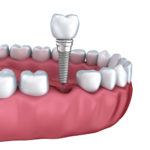Table of Contents
Tonsils are two small tissues that are situated at the back of the throat. These are part of the body’s immune system and produce antibodies and white blood cells to help protect the body against infections.
Because the tonsils are placed at such a strategic position and collect bacteria to fight them off—they are often subjected to various conditions that result in swelling and pain. One of these conditions is Tonsil Stones.
This article walks you through all there is to know about tonsil stones and the ways to prevent them.

What Are Tonsil Stones And How Are They Formed?
The tonsils are made up of several crevices, pits and tunnels known as ‘tonsil crypts’. Because of these, food remnants, debris and bacteria often accumulate in these crypts and can calcify over time if not removed.
These calcified debris form stones on the tonsil. Some people may only have one stone, while others can develop several at a time.
A tonsil stone is a yellowish or white hard mass that can range in size from a pea-sized ball to the size of a large grape. Since tonsil stones accumulate bacteria, they often have an unpleasant odor.
While the tonsils ward off against infections and bacteria, they are often subjected to being infected themselves. Tonsillectomy—a surgical procedure to remove the tonsils—was a common practice to treat or prevent tonsillitis. Because of this, tonsil stones were less common. Now tonsillectomies are less prevalent and more people are vulnerable to tonsil stones.
Tonsil stones are usually caused by:
- Poor oral hygiene
- Sinus issues
- Large tonsils
- Chronic tonsillitis
Symptoms Of Tonsil Stone
Most people may not even realize they have tonsil stones because they do not cause any noticeable symptoms. Often, when they get large, the stones may be visible on X-rays or CT scans.
Some of the symptoms of tonsil stones include:
Bad Breath
Even though tonsil stones do not manifest in noticeable symptoms, these do cause severely bad breath, known as ‘halitosis’. Halitosis also occurs in a tonsil infection which often occurs with tonsil stones.
Sore Throat
Tonsil stones, when they are big enough, can result in faint discomfort in the throat while swallowing. Patients with tonsil stones may feel that there is something at the back of their throats when they swallow. Moreover, if patients suffer from tonsillitis and tonsil stones at the same time, they may also feel pain in their throat.
Coughing
Tonsil stones may also result in coughing as the stones can cause irritation in the throat.
Difficulty In Swallowing
Tonsil stones can cause difficulty while swallowing because of their size or location.
White Debris
An obvious symptom of tonsil stones is that you may see small white solid at the back of your throat. However, these are not always visible and a dentist or other healthcare provider may examine your throat to diagnose tonsil stones.
Swelling Of Tonsils
Tonsil stones often appear in conjunction with tonsil swelling. As the debris calcifies, infection, inflammation and the tonsil stones may make the tonsils swell.
Ear Pain
Even though tonsil stones do not touch your ear, they can still result in ear pain. This is due to the shared nerve pathways between the throat and the ears. As the tonsils get inflamed, patients may feel pain in their ears in addition to their throat.
Diagnosis Of Tonsil Stones
If you ever visit your dentist for tonsil stones, they will usually diagnose the tonsil stones by a physical evaluation. However, sometimes the stones are well hidden within the folds of the tonsils, or are not big enough to be seen with the naked eye. When this happens, your doctor may run a few imaging tests, such as MRI scans or CT scans to locate the stones. For scheduling an appointment with the dentists in North Reading.
Methods For Removing Tonsil Stones
While tonsil stones are completely harmless, they may cause discomfort and bad breath. Because of these reasons, people are more inclined on removing them. There are various methods of removing tonsil stones, ranging from home remedies to medical procedures.
Gargling
Gargling with warm salt water may help in dislodging the tonsil stones. It can also help in easing throat discomfort. Moreover, it may also help in getting rid of the bad odor that comes with tonsil stones.
All you have to do is dissolve ½ teaspoon of salt in 8 ounces of warm water and gargle.
Coughing
Even though this may seem very odd, but coughing can help in loosening the stones formed deep inside the tonsils.
Removing The Stones Manually
Removing tonsil stones with sharp or rigid items, such as toothbrush or toothpicks is not recommended. The tonsils are delicate tissues that can become inflamed if handled with too much roughness.
If the stones have become too uncomfortable and you must remove them manually, try using a cotton swab and pushing the stone upwards toward the mouth and not into the throat. However, it is better to consult a dentist or your healthcare provider for removing stones.
Laser Tonsil Cryptolysis
This procedure is performed under a local anesthesia and involves the elimination of tonsil crypts through a laser. As the crypts are eliminated, the stones are dislodged from their places and are removed. There is minimal discomfort and recovery time following this procedure.
Coblation Cryptolysis
In this procedure, radio waves are used to transform normal salt water into charged ions. These ions are able to cut through tissue and are then targeted at the tonsil stones for removal. This procedure, although similar to Laser Tonsil Cryptolysis, works on reducing tonsil crypts with minimal discomfort.
Tonsillectomy
Tonsillectomy is a surgical procedure to remove tonsils. This procedure is performed using a laser, coblation device or a scalpel.
However, using tonsillectomy for tonsil stones is considered to be the last resort for treatment when all other methods have failed.
Administering Antibiotics
Antibiotics are another treatment measure for tonsil stones. These kill the bacteria that result in the growth of the stones.
However, antibiotics do not target the underlying cause of the stones—the crevices on the tonsils and rather gets rid of the bacteria that forms in these crevices.
Are There Any Complications Of Tonsil Stones?
Although rare, tonsil stones can result in these complications if not taken seriously.
- Formation of abscess, which is a kind of infection of the tonsils.
- If the tonsil stones are too large, they can result in damaging the tonsil tissue and cause inflammation and swelling.
- Tonsil stones that cause infections may require surgery to manage.
Are Tonsil Stones Contagious?
A few commonly asked questions when someone is suffering from tonsil stones asks is whether the tonsil stones are contagious or not and can the condition be passed onto friends and family by sharing your utensils with them or kissing them.
The answer is no, tonsil stones are not contagious.
If you have discomfort in your throat and observe white or yellowish spots at the back of your throat, consult your dentist to discuss treatment options with them. Even though tonsil stones can be well managed by dentists or physicians, you may be referred to an otolaryngologist if your doctor thinks your condition needs to be treated by a specialist.
Can You Prevent Tonsil Stones?
One important thing to keep in mind here is that those people who have long-term tonsillitis may get frequent tonsil stones. These tonsil stones can only be removed and not prevented. However, one way of getting rid of this issue to have your tonsils removed completely. Before making the decision of getting a tonsillectomy consult your dentist or medical health practitioner about its pros and cons. To visit one of the best dentists in Orleans get in touch with Blackburn Dental Center.
Moreover, practice good oral care at home by brushing twice a day for two minutes and flossing once every day to decrease the chances of getting tonsil stones. Furthermore, use an antibacterial mouthwash to prevent the buildup of bacteria in your mouth.
A Final Word
Tonsil stones are yellowish or whitish small globules that form in the crevices of the tonsils due to increased bacterial growth inside the mouth. Common symptoms of tonsil stones include white spots at the back of the throat, difficulty swallowing, sore throat, an inflamed tonsil, etc.
While tonsil stones can be easily removed by gargling with warm salt water or removing them with a cotton swab, consult your dentist or physician if you’re unable to manage them at home.
Tonsil stones rarely develop into a complicated condition; however, it is better to discuss treatment options with your doctor to prevent any complication whatsoever.
Your doctor may use laser, coblation procedure or surgery to remove the tonsil stones.
While prevention from tonsil stones is difficult if you have too many crevices in the tonsils, maintaining good oral health is necessary to reduce your chances of getting them. Brush twice daily and regularly floss to prevent bacteria buildup in the mouth.






